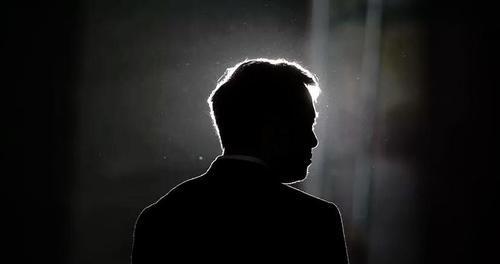
Breaking News
 Outrage Erupts as Released MS-13 Gang Member Kilmar Abrego Garcia...
Outrage Erupts as Released MS-13 Gang Member Kilmar Abrego Garcia...
 The backbone of U.S. capital markets just got the green light to move $100 trillion onchain
The backbone of U.S. capital markets just got the green light to move $100 trillion onchain
 SILVER IS ENTERING A "GENERATIONAL" SQUEEZE.
SILVER IS ENTERING A "GENERATIONAL" SQUEEZE.
Top Tech News
 EngineAI T800: Born to Disrupt! #EngineAI #robotics #newtechnology #newproduct
EngineAI T800: Born to Disrupt! #EngineAI #robotics #newtechnology #newproduct
 This Silicon Anode Breakthrough Could Mark A Turning Point For EV Batteries [Update]
This Silicon Anode Breakthrough Could Mark A Turning Point For EV Batteries [Update]
 Travel gadget promises to dry and iron your clothes – totally hands-free
Travel gadget promises to dry and iron your clothes – totally hands-free
 Perfect Aircrete, Kitchen Ingredients.
Perfect Aircrete, Kitchen Ingredients.
 Futuristic pixel-raising display lets you feel what's onscreen
Futuristic pixel-raising display lets you feel what's onscreen
 Cutting-Edge Facility Generates Pure Water and Hydrogen Fuel from Seawater for Mere Pennies
Cutting-Edge Facility Generates Pure Water and Hydrogen Fuel from Seawater for Mere Pennies
 This tiny dev board is packed with features for ambitious makers
This tiny dev board is packed with features for ambitious makers
 Scientists Discover Gel to Regrow Tooth Enamel
Scientists Discover Gel to Regrow Tooth Enamel
 Vitamin C and Dandelion Root Killing Cancer Cells -- as Former CDC Director Calls for COVID-19...
Vitamin C and Dandelion Root Killing Cancer Cells -- as Former CDC Director Calls for COVID-19...
 Galactic Brain: US firm plans space-based data centers, power grid to challenge China
Galactic Brain: US firm plans space-based data centers, power grid to challenge China
Elon Musk Threatened To Quit As CEO If Board Didn't Fight SEC & Publicly Back Him

Most people were baffled when they found out the terms of the original SEC settlement that Elon Musk turned down. Hearing that Musk had turned down a two-year director bar, leaving him as CEO, and just a $10 million fine, garnered a lot of attention in the industry and left many wondering why the CEO, and more importantly why Tesla's board, would waste their time trying to fight the SEC instead of putting the matter behind them for such a pittance.
Now, a new report out from the New York Times explains this in depth. Apparently, the company was ready memorialize their carefully crafted settlement with the SEC, until Elon Musk reportedly called his board of directors and threatened to resign as CEO on the spot if the company entered into the prepared settlement. In addition, he demanded that the Board of Directors "publicly extol his integrity". This led to the baffling statement that the Board of Directors made to the public, after Musk was sued, claiming at the time:
"Tesla and the board of directors are fully confident in Elon, his integrity, and his leadership of the company, which has resulted in the most successful U.S. auto company in over a century. Our focus remains on the continued ramp of Model 3 production and delivering for our customers, shareholders, and employees."
This type of negotiating not only speaks to Musk's control over the Board of Directors, but is a dangerous game of Russian roulette with regulators.
Jeffrey Sonnenfeld, a professor at the Yale School of Management, stated on Friday: "What it tells us is this board, as a strategic plan, must be using the Jim Jones-Jonestown suicide pact. They are drinking the Kool-Aid of the founder. It is completely as self-destructive as Musk is."
After the company refused the settlement at the last minute, the SEC was forced to file the lawsuit against Mr. Musk. It was only one day later that Tesla's lawyers were reportedly back at the SEC "groveling for a second chance" at the behest of Mr. Musk.
Musk apparently changed his mind after watching Tesla stock get destroyed, losing 14% in the trading session that followed the SEC complaint. If true, this serves as further proof that Musk makes his major decisions based on what the stock price is doing.
Last weekend, Musk finally gave in and settled - not for a two year bar and a $10 million fine, but for a three year bar and a $20 million fine. Ah, the art of the deal.
As part of the SEC settlement, Tesla is required to being on two independent directors and appoint a new independent chairman. Everybody seems to be in agreement that Elon needs parental supervision now, including the SEC.
John C. Coffee Jr., a professor at Columbia Law School, stated:
"Rejecting such a favorable settlement is proof that he needs monitoring. He didn't have a legal leg to stand on, and I'm sure his lawyer told him that. But he got very touchy about not being able to proclaim his innocence."

 This is not a bubble.
This is not a bubble.



